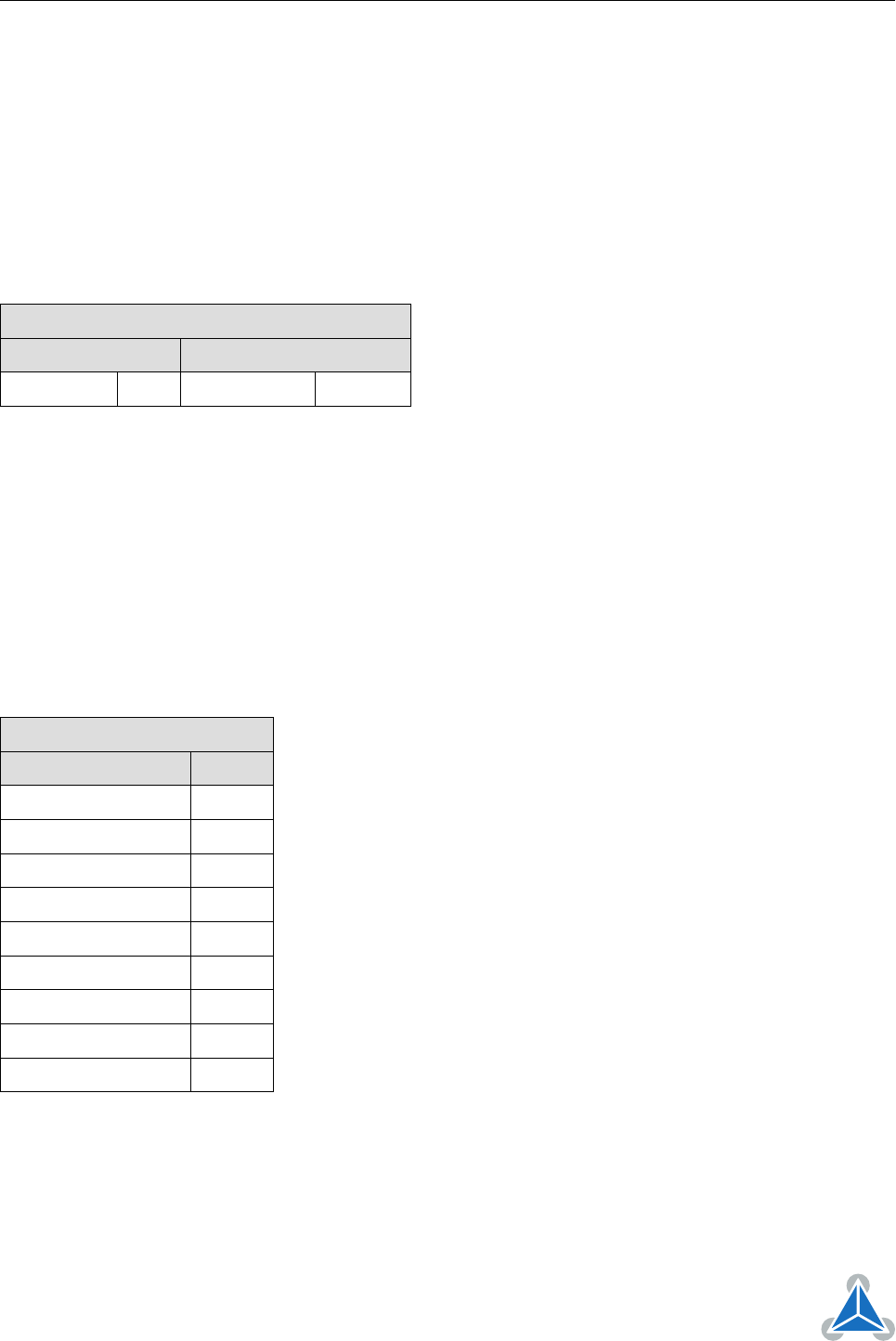User Manual
Table Of Contents
- 1 Features
- 2 First Steps with TMCL
- 3 TMCL and the TMCL-IDE — An Introduction
- 3.1 Binary Command Format
- 3.2 Reply Format
- 3.3 Standalone Applications
- 3.4 The ASCII Interface
- 3.5 TMCL Command Overview
- 3.6 TMCL Commands by Subject
- 3.7 Detailed TMCL Command Descriptions
- 3.7.1 ROR (Rotate Right)
- 3.7.2 ROL (Rotate Left)
- 3.7.3 MST (Motor Stop)
- 3.7.4 MVP (Move to Position)
- 3.7.5 SAP (Set Axis Parameter)
- 3.7.6 GAP (Get Axis Parameter)
- 3.7.7 STAP (Store Axis Parameter)
- 3.7.8 RSAP (Restore Axis Parameter)
- 3.7.9 SGP (Set Global Parameter)
- 3.7.10 GGP (Get Global Parameter)
- 3.7.11 STGP (Store Global Parameter)
- 3.7.12 RSGP (Restore Global Parameter)
- 3.7.13 RFS (Reference Search)
- 3.7.14 SIO (Set Output)
- 3.7.15 GIO (Get Input)
- 3.7.16 CALC (Calculate)
- 3.7.17 COMP (Compare)
- 3.7.18 JC (Jump conditional)
- 3.7.19 JA (Jump always)
- 3.7.20 CSUB (Call Subroutine)
- 3.7.21 RSUB (Return from Subroutine)
- 3.7.22 WAIT (Wait for an Event to occur)
- 3.7.23 STOP (Stop TMCL Program Execution – End of TMCL Program)
- 3.7.24 SCO (Set Coordinate)
- 3.7.25 GCO (Get Coordinate)
- 3.7.26 CCO (Capture Coordinate)
- 3.7.27 ACO (Accu to Coordinate)
- 3.7.28 CALCX (Calculate using the X Register)
- 3.7.29 AAP (Accu to Axis Parameter)
- 3.7.30 AGP (Accu to Global Parameter)
- 3.7.31 CLE (Clear Error Flags)
- 3.7.32 EI (Enable Interrupt)
- 3.7.33 DI (Disable Interrupt)
- 3.7.34 VECT (Define Interrupt Vector)
- 3.7.35 RETI (Return from Interrupt)
- 3.7.36 Customer specific Command Extensions (UF0…UF7 – User Functions)
- 3.7.37 Request Target Position reached Event
- 3.7.38 TMCL Control Commands
- 4 Axis Parameters
- 5 Global Parameters
- 6 Module Specific Hints
- 7 Hints and Tips
- 8 TMCL Programming Techniques and Structure
- 9 Figures Index
- 10 Tables Index
- 11 Supplemental Directives
- 12 Revision History

PD-1160 TMCL
™
Firmware Manual • Firmware Version V1.42 | Document Revision V1.06 • 2018-JAN-09
72 / 113
3.7.37 Request Target Position reached Event
This command is the only exception to the TMCL protocol, as it sends two replies: One immediately after
the command has been executed (like all other commands also), and one additional reply that will be
sent when the motor has reached its target position. This instruction can only be used in direct mode (in
standalone mode, it is covered by the WAIT command) and hence does not have a mnemonic.
Internal function: send an additional reply when a motor has reached its target position.
Related commands: none.
Binary Representation
Instruction Type Motor/Bank Value
138 0/1 0 (don’t care) always 1
With command 138 the value field is a bit vector. It shows for which motors one would like to have a
position reached message. The value field contains a bit mask where every bit stands for one motor. For
one motor modules like the PD-1160 it only makes sense to have bit 0 set. So, always set this parameter to
1 with the PD-1160 module. With the type field set to 0, only for the next MVP command that follows this
command a position reached message will be generated. With type set to 1 a position reached message
will be generated for every MVP command that follows this command. It is recommended to use the latter
option.
Example
Get a target position reached message for each MVP command that follows.
Binary Form for this example
Field Value
Target address 01
h
Instruction number 8A
h
Type 01
h
Motor/Bank 00
h
Value (Byte 3) 00
h
Value (Byte 2) 00
h
Value (Byte 1) 00
h
Value (Byte 0) 01
h
Checksum 8D
h
©2018 TRINAMIC Motion Control GmbH & Co. KG, Hamburg, Germany
Terms of delivery and rights to technical change reserved.
Download newest version at www.trinamic.com










